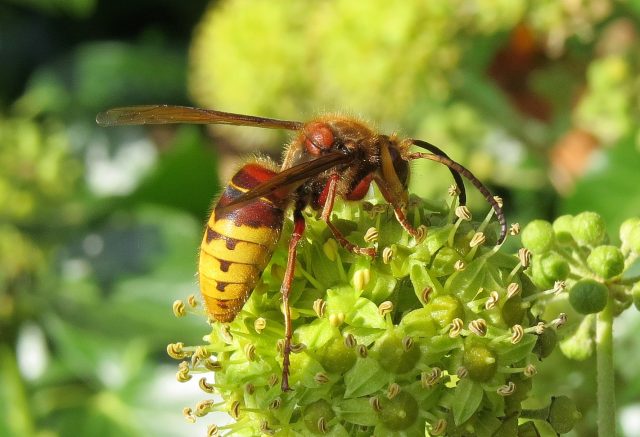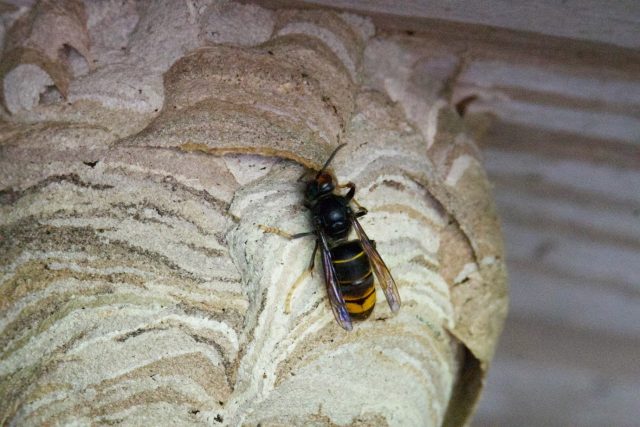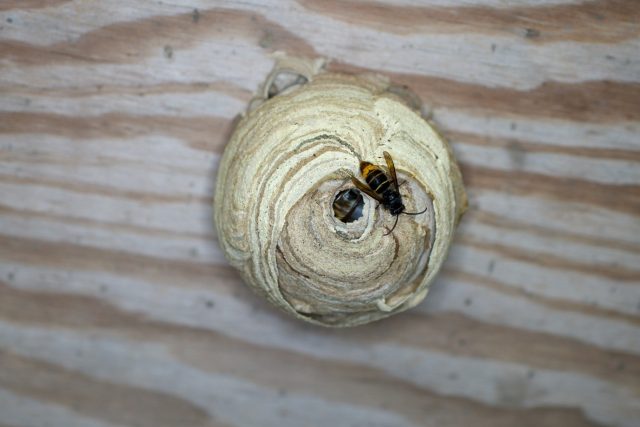The Asian ‘Yellow-legged’ Hornet (Vespa velutina) is a far eastern and south Asian species that was accidentally introduced into France from China around 2004. The hornet has since spread across many parts of Western Europe and can be found in 12 countries, including the UK.
This invasive non-native species is a voracious predator and poses a significant threat native insect species and honeybees. An average Asian Hornet nest can consume over 11kg of insects a year.
There are currently three species of hornet found in Europe, only one, The European Hornet (Vespa crabro) is native to Britian. The Oriental Hornet (Vespa orientalis), is found in southern and eastern parts of Europe. The Asian Hornet (Vespa velutina) was accidently introduced through the movement of goods. The Asian hornet is now thought to be established in Spain, Belgium, Netherlands, Portugal, Italy, Switzerland, Germany and Jersey.
The Asian Hornet can make their way to the UK by flying across the channel or by being transported on ferries, vehicles and via imported goods such as horticulture products. Between 2016 and 2022, there were 23 confirmed sightings in the UK, including 13 nests. In 2023, there were 72 nests found in 56 locations, which was more than the previous 6 years combined. The Asian Hornet has no natural predators in this region of the world, which enables them to establish populations in places like France and the UK. Without eradication efforts, Asian Hornets would continue to spread unchecked which would have serious consequences for our biodiversity, as has already been demonstrated in France.
The Asian Hornet is often confused with the Asian Giant Hornet, also known as the Mandarin Hornet or ‘Murder Hornet’, (Vespa mandarinia) in the media – this species has not been recorded in Europe and the two should not be confused. The Asian Hornet can be up to 3cm in length and is actually smaller than the European Hornet (Vespa crabro).
How to Identify an Asian Hornet




